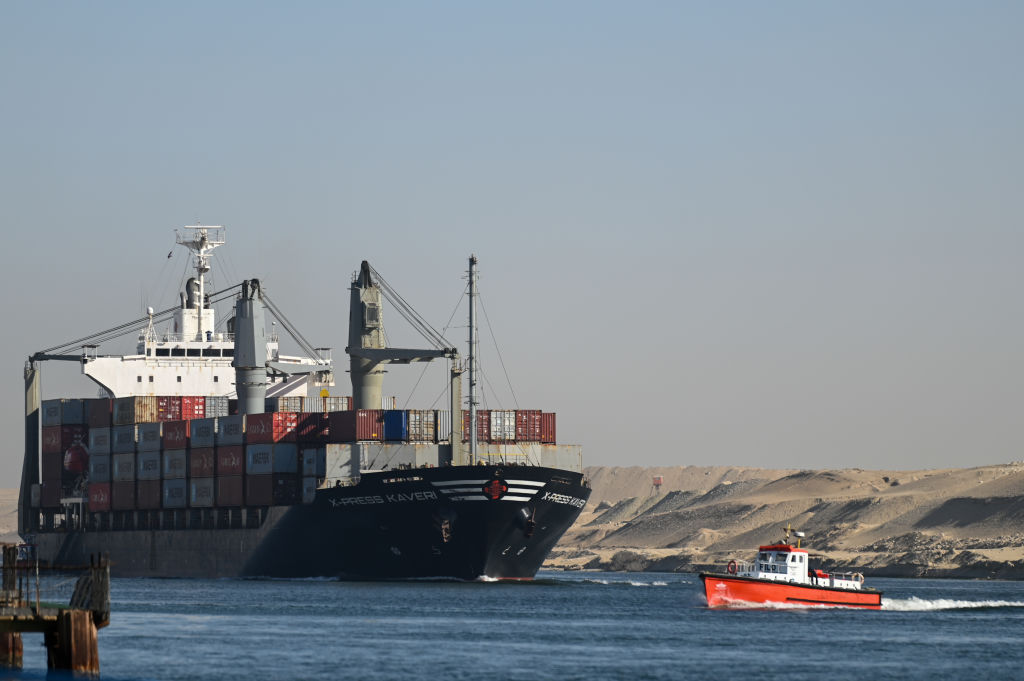
The debate over the US request for Australia to send a warship to support the US-led maritime coalition protecting shipping in the Red Sea from Yemen-based Houthi forces has given pundits an opportunity to push various barrows.
Australia’s opposition leadership was bullish about the request, seeking a point of difference with the government on security issues.
Some commentators backed the need for Australia to provide a ship to the Red Sea because it was in our national interest or because our refusal wouldn’t be forgotten in Washington or might raise questions in the minds of our AUKUS partners about to our ability to deliver defence capabilities when required.
Although it was decided to provide additional staff to supplement the Bahrain-based coalition’s maritime headquarters, some saw the failure to provide a ship as justification for expanding the navy.
For what it’s worth, the fleet commander said the navy was ready to provide a ship if the government directed it to do so.
Yet for all the kerfuffle over the issue, it was a no-brainer for the government to decline the request but show solidarity by sending staff officers and later cosigning a letter with 11 other nations calling on the Houthi movement to cease attacks on shipping. For several reasons, Canberra made the right call in declining to send a major fleet unit.
We were one of dozens of nations asked to contribute to the US-led coalition. The broad-brush request appeared to have emanated at the operational level (a bottom-up request), and there’s no indication that we were singled out for any high-level, one-on-one invitation. Such requests at the operational level are not uncommon and countries are generally not seen in a lesser light if they decline to go the full monty. Saying no becomes hard for those states in the affected region, much harder if the request is at the cabinet level and harder still if it is leader to leader. None of those situations applied to Australia in this instance.
Freedom of navigation is a common good, but where ships freely navigate matters a lot more to some countries than it does to others. Much was made of the fact that the Red Sea accounts for 12% of global trade and 30% of global container trade. Yet we weren’t told how much of that involved Australian imports and exports. About 15% of Australia’s container trade is with Europe and it’s normally transhipped through Asian ports.
By contrast, the Red Sea is critical to trade between China and Europe. Sixty per cent of China’s trade with Europe passes through the Suez Canal and 10% of ships passing through the canal are Chinese. On these figures alone, China’s interest in maintaining freedom of navigation through the Red Sea dwarfs that of Australia. Politically speaking, how would the government justify sending a vessel to protect Chinese–European trade when that’s much more important to China and it hasn’t (as far as we’re aware) contributed.
The same goes for European interests that dwarf ours by several orders of magnitude. Shipping giants such as the Danish Maersk, the German Hapag-Lloyd and the Italian Mediterranean Shipping Company, for example, are all significant users of the Red Sea route. Yet despite their direct economic interest in free passage through the Suez Canal, the European contribution hasn’t really reflected this.
Italy brought forward its frigate deployment as part of an existing European anti-piracy campaign, Operation Atalanta, with a separate command chain and an area of operations that includes but is by no means restricted to the Red Sea. Denmark is planning to gain parliamentary approval to send a frigate before the end of January, Germany is still deciding what to do and France is part of the naval forces operating in the Red Sea but has not ceded command to the coalition.
Singapore, a country with a much greater direct economic stake in maritime safety in the Red Sea than Australia—and which has already had one of its flagged merchant ships attacked—is sending staff officers but no ship.
Given the low-level nature of the general request and Australia’s limited economic interest in the waterway compared to the Chinese and European economies, it’s little wonder that the government found it straightforward to decline sending a major fleet unit to protect other countries’ trade. Our provision of staff officers and diplomatic support allows the US to highlight multinational concern over the actions of the Houthis and is proportionate to our interests in that maritime environment. Far from Washington remembering our decision not to provide a ship, it has more likely already forgotten, if it even registered in the first place.

